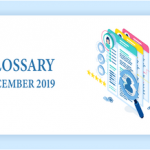Virtualization: Virtualization (or virtualisation) is the simulation of the software and/or hardware upon which other software runs. This simulated environment is called a virtual machine . There are many forms of virtualization, distinguished primarily by computing architecture layer. Virtualized components may include hardware platforms, operating systems (OS), storage devices, network devices or other resources.
ALM (Application Lifecycle Management): A continuous process of managing the life of an application through governance, development and maintenance. ALM is the marriage of business management to software engineering made possible by tools that facilitate and integrate requirements management, architecture, coding, testing, tracking, and release management. Source Control: There are many source control tools, and ...
Tcl/Tk Language Tcl (Tool Command Language) is a very powerful but easy to learn dynamic programming language, suitable for a very wide range of uses, including web and desktop applications, networking, administration, testing and many more. Open source and business-friendly, Tcl is a mature yet evolving language that is truly cross platform, easily deployed and ...
Mobility While mobile usually refers to mobile device, mobile apps, mobile platform. Mobility is a term describing not only the device but access for employees accessing corporate data from any location, cloud storage and cloud API services, mobile context awareness, integration with a variety of Internet of Things devices. It’s access to the data, products, and ...
ACID Properties In computer science, ACID (atomicity, consistency, isolation, durability) is a set of properties of database transactions intended to guarantee data validity despite errors, power failures, and other mishaps. In the context of databases, a sequence of database operations that satisfies the ACID properties (which can be perceived as a single logical operation on ...
A list of terms that are either found in the articles of the December 2015 edition, or are related to concepts relevant to those articles.
Platform – A computing platform includes a hardware architecture and a software framework (including application frameworks), where the combination allows software, particularly application software, to run. Typical platforms include a computer architecture, operating system, programming languages, related user interface and tools. For example, Android, the most common mobile platform, is Google’s open and free software ...
Ultra-large-scale system An ultra-large-scale systems (ULSS) is one which has the characteristics of: operationally independent sub-systems; managerially independent components and sub-systems; evolutionary development; emergent behavior; and geographic distribution.
Teaching: A formal process of bringing about awareness, conferring knowledge and instilling skills. Teaching focuses on knowledge. Training: Prepares an individual or group to execute a skill. The focus of training is skill development.
Lean Defining Lean Software Development is challenging because there is no specific Lean Software Development method or process. Lean is not an equivalent of Personal Software Process, V-Model, Spiral Model, EVO, Feature-Driven Development, Extreme Programming, Scrum, or Test-Driven Development. A software development lifecycle process or a project management process could be said to be “lean” ...
Extreme Programming (XP) XP is a software development methodology which is intended to improve software quality and responsiveness to changing customer cycles. A type of Agile software development, it advocates frequent “releases” in short development cycles, which is intended to improve productivity and introduce checkpoints at which new customer requirements can be adopted. Source: https://en.wikipedia.org/wiki/Extreme_programming ...
Behavior Driven Development (BDD) A software development methodology in which an application is specified and designed by describing how its behavior should appear to an outside observer. BDD combines the general techniques and principles of test-driven development (TDD) with ideas from domain-driven design and object-oriented analysis and design to provide software development and management teams ...


















